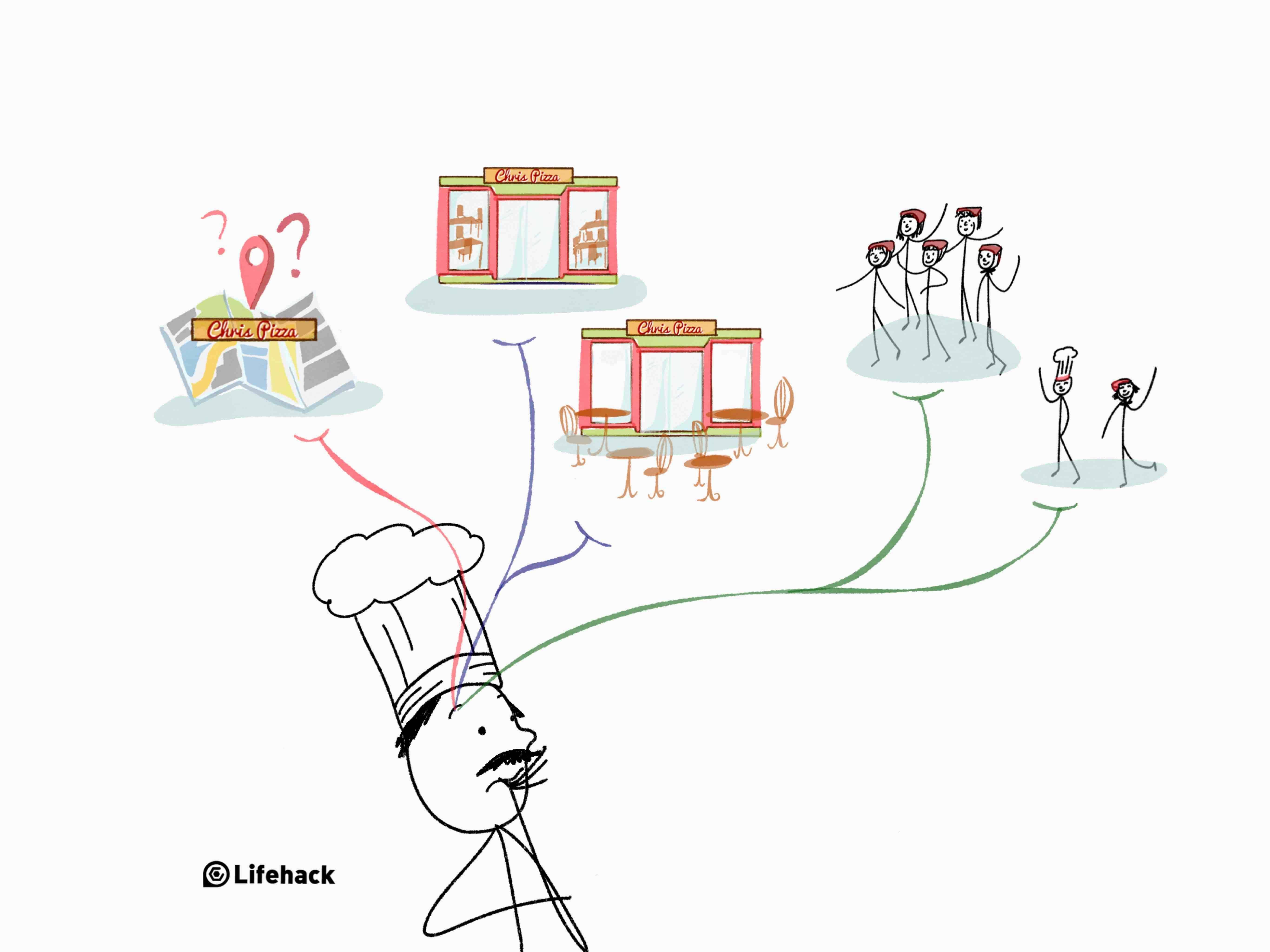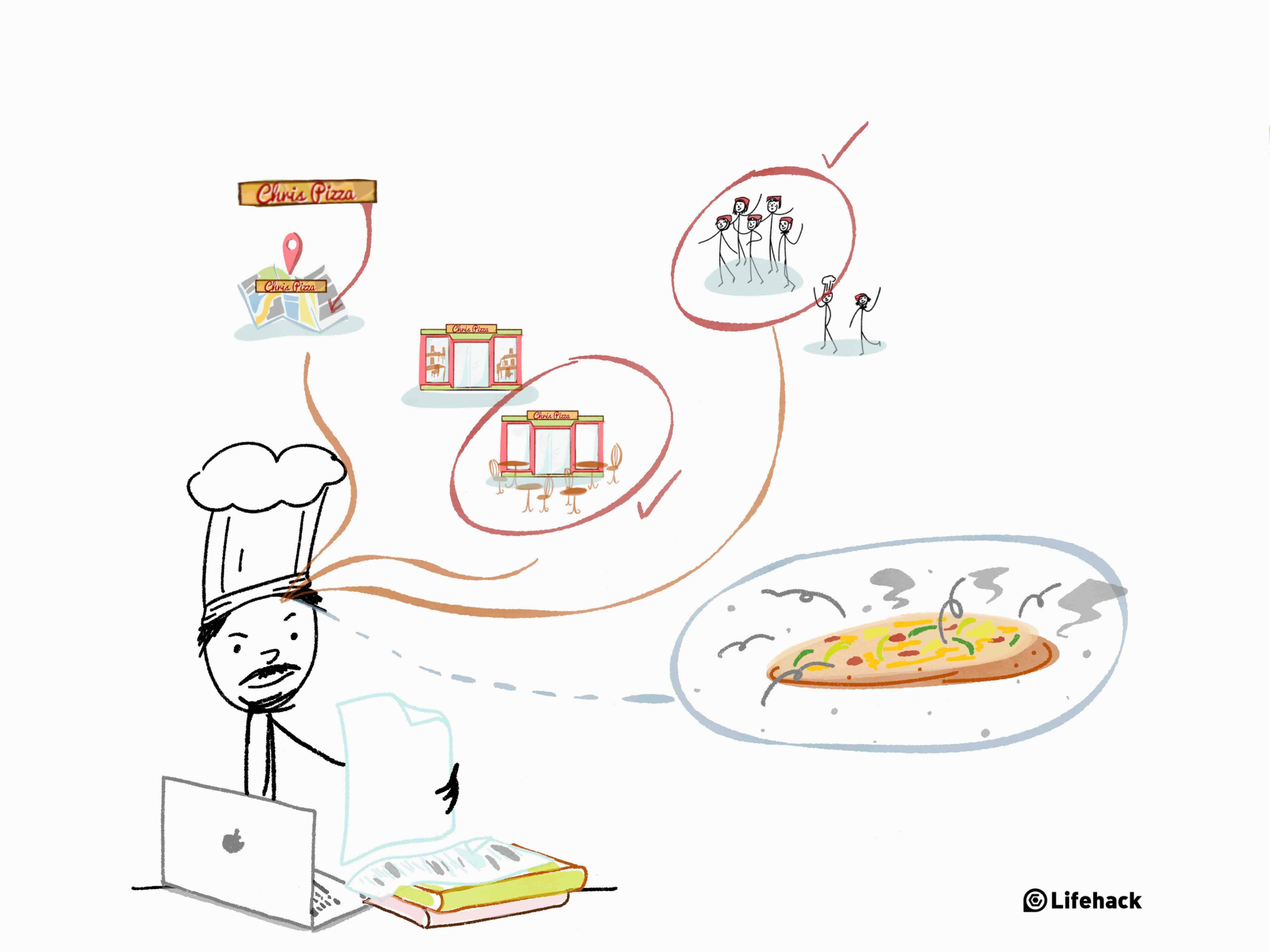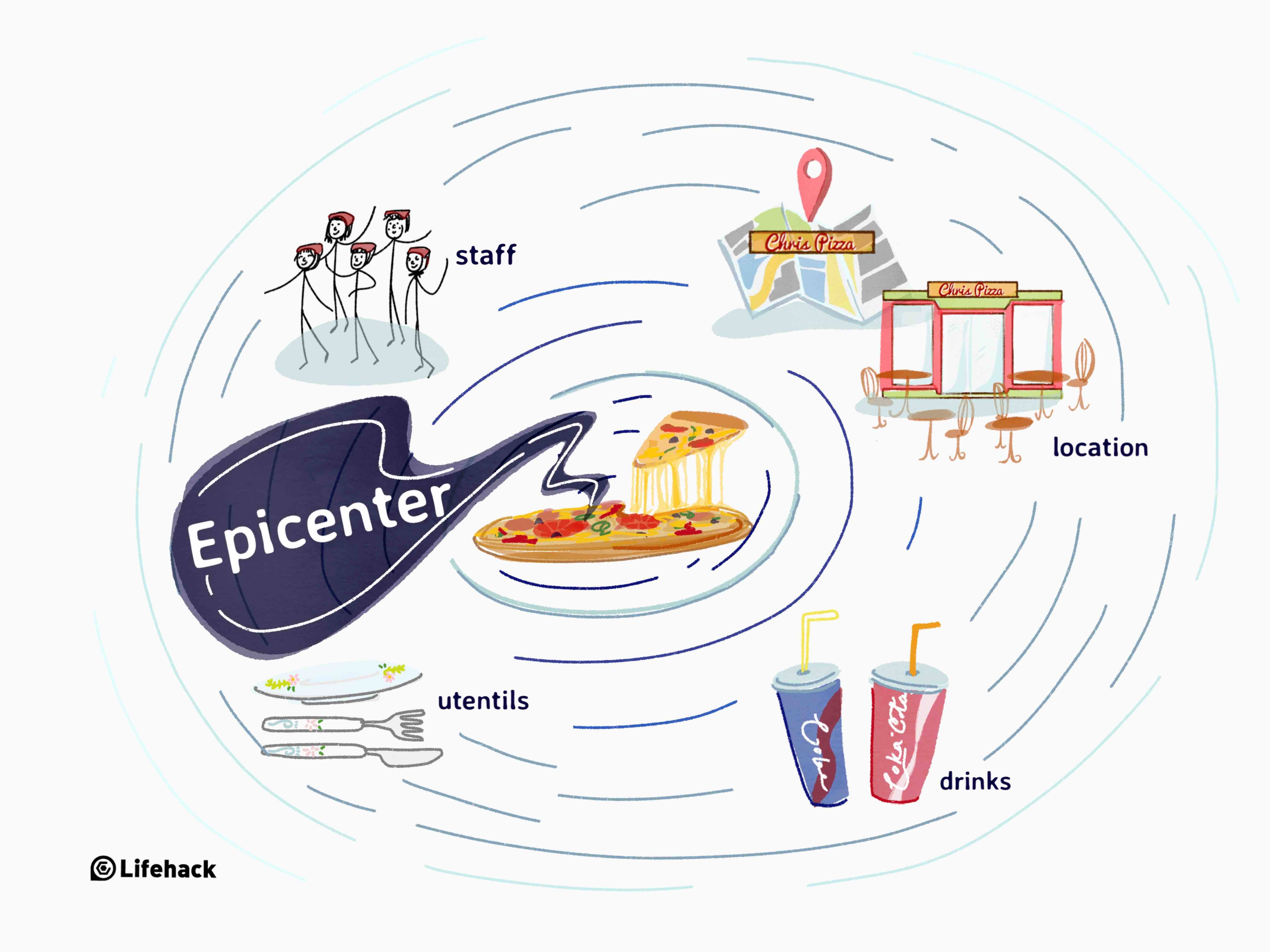As soon as he began the process of opening the restaurant, though, there were lots of other questions he had to consider: the location, taxes, zoning, staffing, and business planning. So he began researching and talking to people, which all took a lot of time. He figured out the right location, the staffing, the tax implications, the business plan, and more.
He felt he was ready to open. But what suffered when he finally got started was the actual quality of the pizzas.
How could that be? Wasn’t the pizza-making itself his passion? In fact it happens to 90% of us. We get caught up by all the other things around us that it makes us easily forget the core that creates meaning for our works. So how to turn things around?
Find The Epicenter
The “epicenter” is the core of anything. In terms of earthquakes, for example, it’s where the process begins. In a business sense, an “epicenter” is your core idea. What’s the passion? Why are you investing in this idea, concept, or new project? This idea comes from a book Rework, which was written by Jason Fried, the founder of Basecamp. The book is about looking at business planning and advice in a different way. In the example above, my friend’s epicenter was making quality pizza. If he focused on that side of it and potentially outsourced some of the other work he needed to do, he would have stayed passionate and had great overall performance.
Stay focused on your epicenter
Why are you doing this thing as opposed to doing some other things? When you find that passion in your epicenter, it allows you to be more productive and do more quality work.
Determine what’s a priority
If you begin from your epicenter and view that as your foundation, you can more clearly understand what’s necessary to do in the future and what’s not. You can also better figure out what elements to outsource, or assign to someone else. Basecamp became a very powerful productivity tool for a lot of organizations. When Fried was building it, he didn’t rely very much on outside investors — as many do. He also didn’t have a standard business plan — which many people say you must have. Instead, he decided there was a major problem with how teams organized themselves and communicated information back and forth. His team set out to build a product that would help solve that problem. That was his epicenter. Everything else flowed from that. He didn’t instantly get bogged down in details or logistics of other aspects of building a business because his epicenter told him “If you work to solve this problem, the other aspects will get addressed.”
Focus Your Energy
There are always going to be other things that need to be addressed. But if your energy is focused on what you absolutely want to do, you will get better at knowing how to deal with everything else. Think of any random day at work. A lot of people easily become distracted: emails, meetings, people stopping by, and phone calls etc. This is not focusing on your epicenter. If you arrive at work on any given day and think “What do I need to achieve today?” then your day will be much more productive. You will be focusing towards your epicenter. But if you allow yourself to be pulled in any new direction the moment it arises (a new email, a new phone call, a new visitor), you won’t be that productive. You’re not working towards an epicenter. You’re just working towards tasks. If you want to be more productive and successful, then, determine your epicenter. Work from there. Featured photo credit: Vecteezy via vecteezy.com


